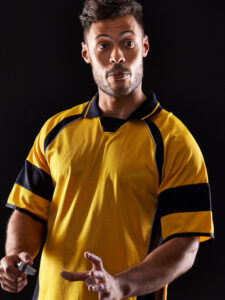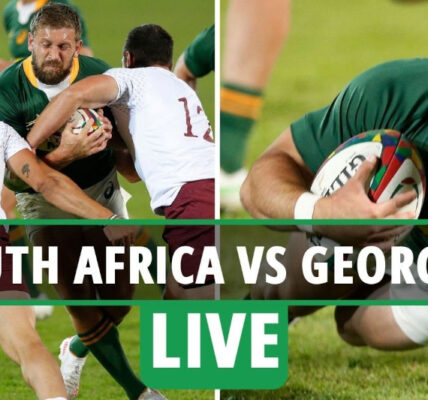At Kings Park Stadium, as players line up and crowds rise to their feet, there’s a moment before the chaos, one clear, sharp sound cutting through it all. The whistle. It’s easy to forget, in the heat of a match, that behind every try, scrum, and penalty stands one figure quietly shaping the outcome, the referee.
In KwaZulu-Natal, where rugby isn’t just sport but a part of life, referees hold a unique kind of local legend status. Loved, loathed, but always respected, their stories weave through the province’s rugby history as firmly as any player’s.
Ask anyone involved in KZN rugby long enough, and names come up like folklore. Mdu Sithole from Pietermaritzburg, known for his signature long pause before a call, a habit that drove players wild with nerves. Or Pieter “Silent Boot” Erasmus from Empangeni, who rarely raised his voice yet kept the fiercest games under control with just a look. There’s also the late Ntombi Mthembu, one of the province’s first female referees, remembered not just for breaking barriers but for her sharp, no-nonsense style that earned her grudging respect on township fields where few women had ever blown a whistle before. These referees didn’t just keep score. They became part of the rhythm of rugby in KZN, unofficial mentors, community figures, and sometimes, walking cautionary tales.
Refereeing rugby isn’t like refereeing other sports. It’s not about waiting for obvious fouls. It’s about controlling tempo, reading body language, predicting where a scrum could collapse before it actually does. “You have to feel the game,” says Thabo Mokoena, a veteran KZN referee with over 200 provincial matches under his belt. “If you wait for everything to be obvious, it’s already too late.” Mokoena remembers matches played in the middle of storms, on fields so muddy the ball disappeared in the dirt. “You don’t stop play for a little rain in KZN,” he says with a laugh. “You just blow when it’s needed.” It’s not always about the letter of the law. In local leagues especially, referees often find themselves managing not just players but the crowd, keeping tempers cool, preventing fights from sparking after a hard tackle.
 If rugby is a kind of storytelling, then referees are the quiet narrators. They decide when the drama builds, when it pauses, when it ends. And sometimes, their decisions echo long after the final whistle. There’s the 1998 Durban City Cup Final, remembered less for who won and more for the penalty call made in the last minute, a controversial whistle blow by Erasmus that split opinion across the province. “You still hear people argue about it at braais,” Mokoena says. “Did he see it properly? Was it the right call? It’s part of the folklore now.”
If rugby is a kind of storytelling, then referees are the quiet narrators. They decide when the drama builds, when it pauses, when it ends. And sometimes, their decisions echo long after the final whistle. There’s the 1998 Durban City Cup Final, remembered less for who won and more for the penalty call made in the last minute, a controversial whistle blow by Erasmus that split opinion across the province. “You still hear people argue about it at braais,” Mokoena says. “Did he see it properly? Was it the right call? It’s part of the folklore now.”
Among younger players, there’s even talk of “ghost whistles.” Stories passed down about hearing a whistle on an empty field late at night, especially in old stadiums like the defunct Richmond Rugby Grounds. “I don’t believe in all that,” Mokoena says, grinning, “but every ref in KZN knows the feeling, walking onto a field alone for early warm-up and feeling like someone’s already there, watching.”
Today, KZN’s referee community continues to grow, with training camps held in places like Umlazi and Pietermaritzburg. Younger referees, men and women alike, are stepping up, learning the rhythms from veterans, practicing their own unique styles. “We teach them not just the rules but how to read a game like a conversation,” says Celeste Naidoo, who runs a referee development programme in Durban. Refereeing is changing too, embracing technology, reviewing footage post-match, and dealing with players who have grown up in a more media-saturated, results-driven rugby environment. But some things stay the same. “It still comes down to the whistle,” Naidoo says. “When to blow it, when to hold it back. That hasn’t changed.”
As the sun sets over Kings Park, and the last echoes of the crowd fade, there’s often one final whistle before the stadium falls quiet, a simple signal that the game is truly over. For the referees of KwaZulu-Natal, that sound is more than routine. It’s a mark of respect, a reminder of the role they’ve played in shaping the province’s rugby story, one call at a time. Not every hero wears a jersey. Some carry a whistle instead.




